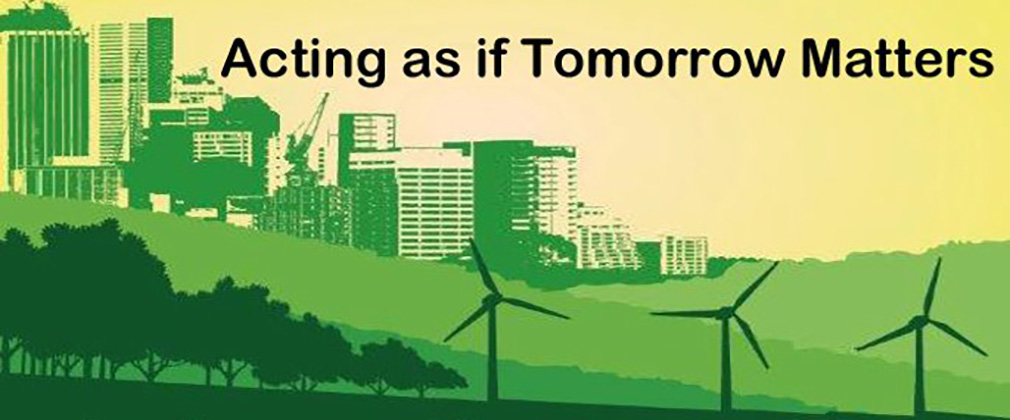Book aims to fast-track transition to sustainable world
While it is widely agreed that world leaders did not accomplish much at the recent Rio+20 summit on sustainable development, there are plenty of activists, academics and eco-entrepreneurs who continue to take the summit’s issues and challenges very seriously – and not just when one of these global conferences is nigh. To be sure, what matters more than these conferences is what caring people do in between them.
As a case in point, this week the Environmental Law Institute published Acting as if Tomorrow Matters: Accelerating the Transition to Sustainability, a sweeping collaboration that includes expert opinions from 51 contributing authors, including Center for a Livable Future (CLF) Director Robert Lawrence and myself. We were all asked to answer a short list of questions from the book’s editor, John C. Dernbach, which went something like this: What progress has the U.S. made in the area of sustainable development? What are the barriers to further progress? How do we overcome them?
Our CLF contribution was in the area of sustainable agriculture, but the book encompasses numerous sustainability topics, including green building, community sustainability, corporate sustainability, brownfields redevelopment, and higher education.
Dernbach, a Widener University law professor, undertook the herculean task of synthesizing the collected answers into a coherent text. He was uniquely qualified for that task, having been inspired by the first “Earth Summit” in 1992 to begin chronicling U.S. progress – and failures – in the drive toward sustainability. Dernbach had edited two previous books about sustainability in America, including one published in 2009, and had concluded that there was no shortage of good ideas about what a sustainable America could look like. What lacked were ideas about how to turn those visions into realities.
Stanford biologist and demographer Paul R. Ehrlich says of Dernbach’s newest volume: “From Rio ’92 to Rio ’12: America’s pledge to achieve sustainability has been honored too often in the breach … Acting as if Tomorrow Matters offers redemption and a vision of success.”
The book acknowledges the emergence of a grassroots sustainability movement in the U.S., and argues that this movement must cut across all sectors of society. It sees the potential for the movement’s political base to “become huge – not merely a majority but a base that is ‘party blind’ and includes the middle 60% to 80% of the American population.”
Why should the American public mobilize for the cause of sustainability? The book gives three essential reasons:
- Sustainability will lead to a higher quality of life because it acknowledges that environmental, social and economic issues are intertwined, not mutually exclusive.
- Sustainability is economically attractive because in a world full of social and environmental crises, “the only economic activity that will be durable, profitable, and job creating is that which is environmentally sustainable.”
- Sustainability is the right thing to do because the “moral dimension of sustainability … includes an understanding of the importance of care for creation as well as the need to care for people who are adversely affected by unsustainable actions.”
Yes, the book does not shy away from moral issues. Instead, it acknowledges that technological and legal changes alone will not be enough to create a successful sustainability movement. This movement will also be about hearts and minds, and about “our ethical and religious responsibilities to others, including future generations, as well as to the environment.”
Amen.
